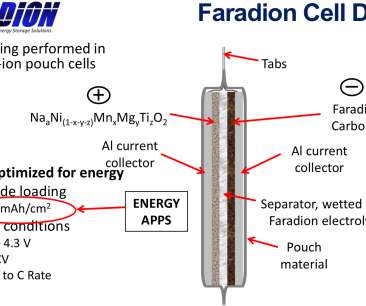Faradion and Phillips 66 to develop lower cost and higher-performing sodium-ion battery materials
Green Car Congress
FEBRUARY 26, 2021
Sodium-ion battery technology has an inherent advantage over other power-storage technologies because it uses low-cost materials that are sustainable and widely available. Current cell designs can provide gravimetric and volumetric energy densities comparable to lithium-ion and greatly in excess of lead-acid batteries.















Let's personalize your content